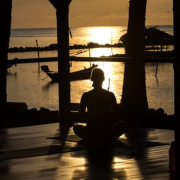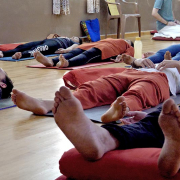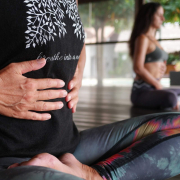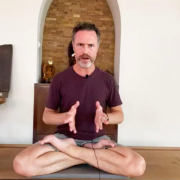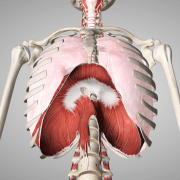 https://samahitaretreat.com/wp-content/uploads/2020/05/diaphragm-lungs.jpg
1116
1088
Dr. Paul Dallaghan
http://samahitaretreat.com/wp-content/uploads/2024/01/samahita-logo-v2.svg
Dr. Paul Dallaghan2020-05-13 04:54:162024-02-15 09:35:589 Benefits of Correct Breathing and Doing Breathing Exercises Part Two of Breathing Exercises and Physical Health – Challenges & Benefits
https://samahitaretreat.com/wp-content/uploads/2020/05/diaphragm-lungs.jpg
1116
1088
Dr. Paul Dallaghan
http://samahitaretreat.com/wp-content/uploads/2024/01/samahita-logo-v2.svg
Dr. Paul Dallaghan2020-05-13 04:54:162024-02-15 09:35:589 Benefits of Correct Breathing and Doing Breathing Exercises Part Two of Breathing Exercises and Physical Health – Challenges & BenefitsBreath and Psychological Well-being
Attention on the breath within a comprehensive yoga approach can be an effective way to address our psychological well-being.
Why so?
The act of respiration has broad impact on several functions within the body, including:
- cell function
- physiological activity via the autonomic nervous system with a direct role in the stress response
- several bodily systems
- as well as cardiac and brain rhythms
Maladapted modes of breathing, particularly hyperventilation, are associated with emotional disturbance such as in an anxiety attack or conditions like agoraphobia (1).
As shown in self-reporting in evaluative psychological surveys there is a role for trained breathing in handling emotions and improving psychological well-being through:
- the pacification of anxiety attacks through a change in breathing
- the robust handling of a stressor
- the resilience to continuous stress as measured by autonomic outcomes such as Heart Rate Variability (HRV)
- improved lung function especially as a predictor of CHD and all-cause mortality
In another study Chang et al. were able to show that a slow-breathing state in humans, from 16 down to 8 breaths per minute:
- increased parasympathetic activity
- reduced sympathetic activity
- shifted sympathovagal balance toward vagal activities
- changes considered to promote autonomic cardiovascular regulation (2)
A comprehensive yoga approach incorporates meditational, relaxational, and breathing techniques, amongst other elements, that, according to Jerath et al., counteract the deleterious effects of stress, anxiety, negative emotions and sympathetic dominance, thereby being a plausible behavioral approach to support:
- stress
- anxiety
- depression
- some emotional disorders
- collectively promoting psychological well-being (3)
A trained breath practice therefore can be considered a valid tool in addressing our psychological well-being in order to build stress-resilience for times of challenge and to handle day-to-day life.
Link to Main Article:
The Power in Yoga’s Approach to Upgraded Breathing
Dr. Paul Dallaghan’s expertise with breathwork, body and meditative practices comes from three sources: (1) three decades of daily dedicated practice and teaching these techniques; (2) uniquely acknowledged in the Yoga tradition by the title of “Master Yogi-Prānācharya (expert in breath)”, following an immersion in the original culture through one-on-one direct training in practice and study of ancient texts; (3) a PhD in doctoral scientific research at a leading US university (Emory) covering both the tradition and science of yoga and breath practices in terms of stress, health and aging. As a result, Paul occupies a unique space to impart genuine teaching and science on the breath, body, and meditative practices, seen as a Teacher-of-teachers and identified to carry on the tradition of Pranayama. His sincere and ongoing role is to teach, write and research, to help put out experienced and authentic information on these areas of how we live, breathe and be, to help people improve their mental and physical health, and live more fulfilling lives.
For more on his background see his bio
References
- Bass, C., & Gardner, W. (1985). Emotional influences on breathing and breathlessness. J Psychosom Res, 29(6), 599-609. doi: http://dx.doi.org/10.1016/0022-3999(85)90069-8
https://europepmc.org/article/med/3910805 - Chang, Q., Liu, R., & Shen, Z. (2013). Effects of slow breathing rate on blood pressure and heart rate variabilities. Int J Cardiol, 169(1), e6-8. doi:10.1016/j.ijcard.2013.08.121
https://www.internationaljournalofcardiology.com/article/S0167-5273(13)01704-X/abstract - Jerath, R., Crawford, M. W., Barnes, V. A., & Harden, K. (2015). Self-regulation of breathing as a primary treatment for anxiety. Appl Psychophysiol Biofeedback, 40(2), 107-115. doi:10.1007/s10484-015-9279-8
https://link.springer.com/article/10.1007/s10484-015-9279-8
More from the Samahita Blog



